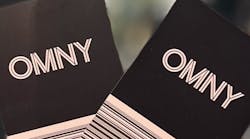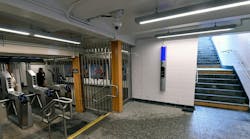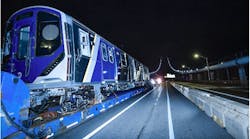Using my Senior New York Metropolitan Transportation Authority (MTA) Metro Card, it only cost me $1.35 each way for my trip to Yankee Stadium on April 5 for Opening Day of the 2024 MLB season. Boarding the Nassau Inter County Express Bus at the City Line in less than 30 minutes brings me to downtown Flushing. Using the free Metro Card transfer, I can enter the New York City (NYC) Transit #7 Flushing subway station.
A quick 30-minute ride on the #7 brings me to my final free transfer at Grand Central Terminal, which afforded me the opportunity to ride the vintage NYC Transit subway old Interborough Rapid Transit 1917 train from Grand Central Station to Yankee Stadium. It was, as it is every year, a great excursion. This, and other equipment is not in service, but is on display at the downtown Brooklyn transit museum. I don't have a driver's license or own a car. As such, there is never need to spend a fortune on Yankee Stadium parking or dealing with end of game traffic jams.
Back in the 1920s, Yankees fans rode these same trains to the ballpark. What a treat to see the old-fashioned ratten seats, ceiling fans and vintage advertisements. This generation of subway cars was so well built and maintained that some remained in transit service for 45 years.
Up until the 1960s, it was common to find both penny gum and soda machines dispensing products at subway stations. It was a time when people respected authority and law. Previous generations of riders did not litter subway stations and buses, leaving behind gum, candy wrappers, paper cups, bottles and newspapers. No one would openly eat pizza, chicken or other messy foods while riding a bus or subway. Everyone paid their way and there was very little fare evasion or rampant graffiti.
Subway conductors would never dream of closing the doors while riders attempted to cross the platform attempting to transfer from a local to the express train. Riders did not have to deal with aggressive panhandlers. It was unusual to find fellow riders hogging two seats, yawning, coughing or sneezing without covering their mouth.
Most subway stations had clean safe working bathrooms with toilet paper. In those days, you had to pay separate fares for buses and subways. Bus operators had to make change while at the same time drive the bus. There was no Metro Card, One Metro New York or Transit Checks to help keep costs down.
In 1967, NYC Transit introduced the first 10 air-conditioned subway cars operating on the old IND system (Independent municipal NYC built, financed and operated A, C, E, F and G lines). It was not until 1975 that air conditioned subway cars were introduced on the old IRT (NYC private franchised Independent Rapid Transit system operated 1, 2, 3, 4, 5, 6, 7, Franklin Avenue and Times Square shuttle lines). Subsequently, this also included the old BMT (NYC private franchised Brooklyn Manhattan Transit system B, D, J, L, M, N, Q, R, W and Z lines). It took until 1982 to retrofit all the original IRT "Redbird" series subway cars. By 1993, 99 percent of the NYC 6,000 subway cars were air conditioned, with the exception of a handful running on the #7 Flushing line.
Thanks to the hard-working NYC Transit subway yard and shops car maintenance employees, it is common to find 98 to 99 percent of all subway cars in service to have functioning air conditioning on any given summer day. The MTA also spends several billion dollars under each five year capital plan for the purchase of new subway cars. The current 2020 - 2024 $51 billion dollar capital plan allocated several billion for the purchase of new subway cars. The only down side is the MTA has a history of completing new subway car procurements several years behind the original forecasted delivery and in service date for new equipment

Larry Penner
Larry Penner is a transportation advocate, historian and writer who previously served as a former director for the Federal Transit Administration Region 2 New York Office of Operations and Program Management. This included the development, review, approval and oversight for billions in capital projects and programs for New Jersey Transit, New York Metropolitan Transportation Authority, NYC Transit bus, subway and Staten Island Railway, Long Island and Metro North railroads, MTA Bus, NYCDOT Staten Island Ferry along with 30 other transit agencies in New York and New Jersey.







